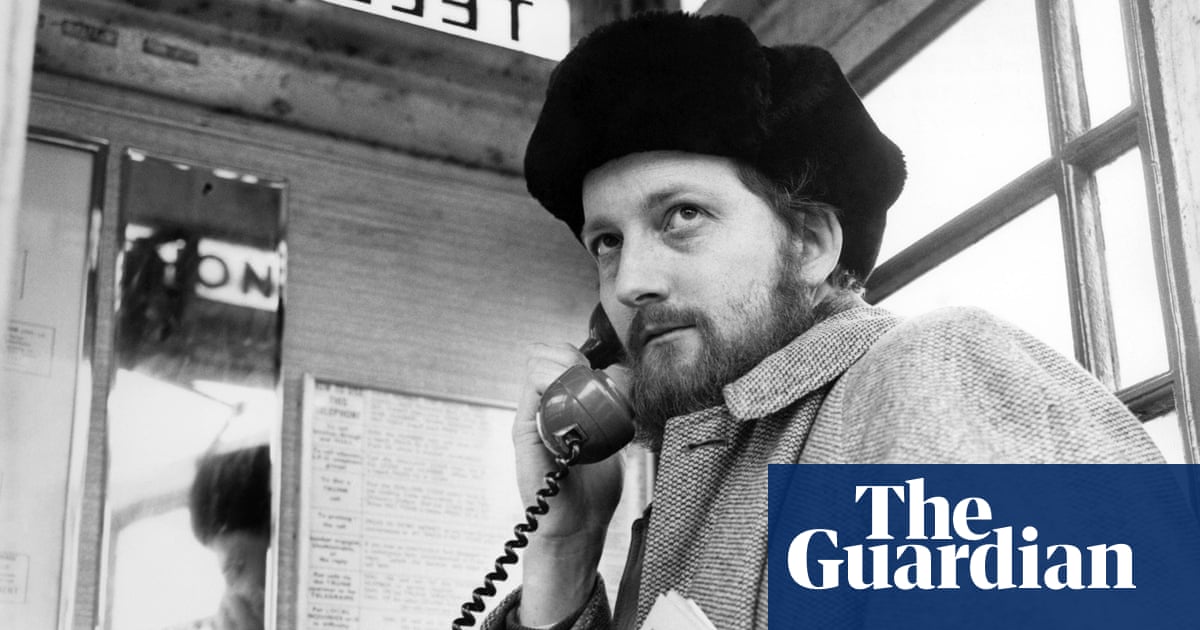There’s a scene from the 2010s series Sherlock that I think about a lot. Sherlock Holmes (Benedict Cumberbatch) visits his “mind palace” to figure out how he and his friend/minion John Watson (Martin Freeman) got drugged. Words, phrases and images float around his head, and he moves them around with his hands.
“It’s a memory technique,” Watson explains to a confused onlooker. “You plot a map of a location – it doesn’t have to be a real place – and then you deposit memories there.” Theoretically, he says, you can never forget anything, he says: “All you have to do is find your way back to it.”
The scene is ridiculous. It’s become a meme. It’s also mostly nonsense. “This seems more like run-of-the-mill free association,” says Dr Nicole Long, associate professor of psychology at the University of Virginia, when I send her a clip.
But the mind palace is a real mnemonic device, and Watson’s description is fairly accurate, says Long. More commonly known as a “memory palace”, or, in academic circles, the method of loci, the technique dates back to ancient Greece. And it’s still widely used: one study found that nine out of 10 “superior memorists” use the method of loci.
I am decidedly not a superior memorist – one with a “remarkably retentive memory”, according to the Collins dictionary. I often feel as if I am starting every day afresh, like a newborn babe. Information enters my brain and then sizzles into nothingness, like water evaporating from a hot pan. Friends bring up people or events from the past, and I smile blankly, with no idea what they’re talking about. If a task or plan is not immediately slotted into the “to-do list” on my phone, it is lost forever.
So, I asked experts how memory palaces really work, and tried to build my own.
What is a memory palace?
As John Watson said in Sherlock, invoking a memory palace involves picturing some structure or place in your mind, and linking items you want to remember with specific locations around that place, Long explains.
“The most classic version is rooms in your home,” she says. Say you want to memorize a list of words, for example. Place each of those words in a different room and think about each item in each place, says Long. For instance, to remember the last 10 winners of the Academy Award for best actress, you could picture Mikey Madison at your front door, Emma Stone in your living room, Michelle Yeoh in your kitchen, and so on.
To remember the words, picture yourself walking through your home and seeing each thing in its specific location.
What kind of information can you store in a memory palace?
The method of loci doesn’t work for all information. It’s best for memorizing simple, discrete bits of data, Long says, like numbers or words.
“For more complicated memories, it is harder to use that as a strategy,” she says. “If you are in the market to buy a house and you go see a bunch of houses, it would start to get weird if you associated each house with a different room in your house. There would be a lot of interference.”
I decide I’m going to memorize the first 20 digits of pi. Friends ask me if this is the most practical information to memorize. When will I use it? They’re going to feel pretty silly someday when a stranger stops us on the street and asks if we can recite the first 20 digits of pi.
How do I build a memory palace?
Although the Sherlock depiction makes it sound like you build one vast, glittering mind palace in which to store all of your memories, that’s not quite how it works.
If you’re trying to memorize different sets of information, it’s helpful to imagine different locations rather than trying to cram all the data into the nooks and crannies of your studio apartment.
“If you walk into one room and you’re queuing five items, that’s hard because you have to disambiguate them and it gets confusing,” says Long.
To learn more, I went to the pros. Vishvaa Rajakumar, an Indian college student who won the 2025 Memory League world championship, told me over email that he doesn’t always picture the same place when storing information. “It could be any location that comes to my mind at that moment,” he says.
Sometimes, he doesn’t even picture places. “For numbers, I give them life by creating images,” he says. “9,356 means Michael Jackson watching TV, while 0812 means Alex Mullen [a memory athlete] eating ice cream.”
Currently, Rajakumar’s record for memorizing 80 random digits is 13.41 seconds. “I can also memorize 180 digits in one minute, and over 360 digits in about three minutes,” he says.
after newsletter promotion
I decide to use my apartment as my memory palace. At the front door, I picture 3.14159; on the kitchen island, 265; on the stove, 358; in my sink, 979; on my bedroom door, 323; on the couch, 846.
It takes me about two minutes to cement the images of the digits in my mind. “Do you want to hear me recite the first 20 digits of pi?” I ask everyone I talk to that day. And several days after that.
None are as impressed as I’d hoped, but I find it satisfying. Also, none of them check whether I’m right, so if I’m wrong, no one would know. Once, reeling through the numbers, I realize I have been saying “256” instead of “265”, but otherwise it seems to have stuck.
Why does it work?
“The short answer is, we don’t know,” says Long.
One theory is that in placing information in a memory palace, we are paying special attention to it and therefore are more likely to remember.
“Just thinking about strategies for trying to remember something is going to help you remember better than just passively letting things wash over you,” Long explains.
But there might be more to it than that. The method of loci is uniquely suited to capitalize on how the brain works. One of the primary areas of the brain responsible for memory is the hippocampus, says Long. “The two things the hippocampus loves to do above everything else is spatial navigation and associations,” she says. So by using spatial navigation to associate a place and an item, we are letting the hippocampus do what it does best.
Can memory palaces improve your overall memory?
“The jury’s still out on that,” Long says. “I think the answer is that it can’t hurt.”
Is memorizing the first 20 digits of pi really that impressive?
Maybe not, but remember what I said about my terrible memory? It felt like a gargantuan achievement to me, someone who regularly forgets the most important item on a shopping list.
Still, to test myself further, I used a random word generator to come up with 12 words for me to memorize: weakness, administration, council, protest, college, anniversary, sausage, genetic, growth, gap, bring, isolation.
I mentally placed these words around my parents’ apartment, which took about a minute. In two minutes, I had them memorized. I tested myself several times throughout the day, and wondered how long I would associate the sconces in my parents’ dining room with the words “college” and “anniversary”.
I’ve been strolling through this list a couple of times a day, and can remember each and every one. How is that useful, you might ask? Well, you’re going to feel pretty silly when a stranger stops me on the street and asks me to say exactly those 12 words.

.png) 1 month ago
40
1 month ago
40

















































